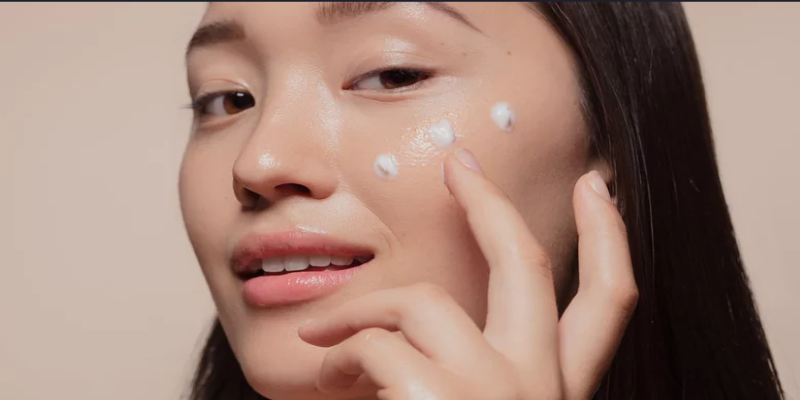Is Slugging Acne-Friendly? Everything You Need to Know
Aug 15, 2024 By Nancy Miller
Skincare trends come and go, but some make a lasting impression. One such trend is slugging, a method that promises intensely moisturized skin by sealing your skincare products with a thick layer of petroleum jelly. However, as with any beauty trend, questions arise about its potential side effects. A major concern is whether slugging can cause acne. In this article, we'll dive into the details of slugging, explore its benefits, and examine if it is truly acne-friendly.

What is Slugging?
Slugging is a skincare technique that involves applying a thick layer of an occlusive agent, typically petroleum jelly, as the final step of your nighttime skincare routine. The term "slugging" comes from the slimy, slug-like appearance your skin takes on after applying the jelly. The idea is to create a barrier that locks in moisture and other products, preventing them from evaporating overnight.
The Appeal of Slugging
The primary allure of slugging is its promise of deeply hydrated skin. Many people who struggle with dry or compromised skin barriers find slugging to be a game-changer. The occlusive layer helps to retain moisture and can enhance the effectiveness of other skincare products applied underneath it. This technique can lead to smoother, more supple skin by morning.
The Science Behind Slugging
Petroleum jelly, the main ingredient used in slugging, is a well-known occlusive agent. It works by forming a protective layer on the skin's surface, which prevents water loss. This can be particularly beneficial for those with dry or sensitive skin types. Petroleum jelly is non-comedogenic, meaning it shouldn't clog pores, which is a significant consideration for acne-prone individuals.

Can Slugging Cause Acne?
Slugging, despite its benefits, can be a double-edged sword for those concerned about acne. Heres a closer look at how slugging can potentially lead to acne:
Trapping Bacteria and Oil
One of the primary ways slugging can cause acne is by trapping bacteria, oil, and other impurities under the occlusive layer. If your skin isnt thoroughly cleansed before applying petroleum jelly, these impurities can get trapped, creating an environment conducive to acne-causing bacteria.
Skin Type Considerations
Your skin type plays a crucial role in how slugging affects you. Individuals with oily or acne-prone skin are more susceptible to breakouts from slugging. The thick layer of petroleum jelly can feel heavy and might contribute to the sensation of clogged pores, even though petroleum jelly is non-comedogenic.
Product Interactions
Slugging involves sealing in all the products applied underneath. If you use active ingredients like retinoids, alpha hydroxy acids (AHAs), or beta hydroxy acids (BHAs), slugging might amplify their effects, potentially leading to irritation or breakouts. These ingredients can be potent, and trapping them under an occlusive layer can sometimes cause skin sensitivity or adverse reactions.
Improper Application
The method of application also matters. Applying a layer of petroleum jelly that is too thick can make it more likely to cause problems. A thin, even layer is often sufficient to achieve the desired benefits without overwhelming the skin.
Frequency of Use
Using slugging too frequently can also pose issues. While occasional slugging can provide significant hydration benefits, daily use might not be necessary for everyone and can increase the risk of breakouts, especially for those with acne-prone skin.
Benefits and Drawbacks of Slugging

Benefits of Slugging
Intense Hydration: Slugging is renowned for its ability to deeply hydrate the skin. By applying a thick layer of petroleum jelly, you create an occlusive barrier that prevents moisture loss. This is particularly beneficial for those with dehydrated skin, as it locks in hydration and helps maintain a plump, dewy complexion.
Enhanced Product Absorption: Petroleum jelly's occlusive nature not only locks in moisture but also helps other skincare products penetrate deeper into the skin. This can make your serums, creams, and treatments more effective. By sealing these products under a protective layer, they have more time to work on your skin overnight.
Improved Skin Barrier: Regular slugging can help strengthen the skins natural barrier. A healthy skin barrier is crucial for protecting against environmental aggressors, retaining moisture, and preventing irritation. Over time, this can lead to healthier, more resilient skin that is better equipped to handle daily stressors.
Soothing Dry Skin: For those with chronic dryness or conditions like eczema, slugging can provide much-needed relief. The intense hydration and protective barrier help to soothe irritated skin, reduce flakiness, and alleviate discomfort associated with dry skin conditions.
Drawbacks of Slugging
Potential for Acne: While petroleum jelly is non-comedogenic, meaning it shouldnt clog pores, it can still trap bacteria, oil, and impurities if your skin isnt thoroughly cleansed before application. This can create an environment where acne-causing bacteria thrive, leading to breakouts, particularly for those with oily or acne-prone skin.
Heavy Feeling: The thick, greasy texture of petroleum jelly can feel heavy and uncomfortable on the skin. Some people might find the sensation unpleasant, especially if they prefer lightweight skincare products. This heavy feeling can be off-putting and may deter regular use.
Not Suitable for All Skin Types: People with sensitive skin may experience irritation or redness from slugging. If any residual irritants or allergens are trapped under the occlusive layer, they can cause adverse reactions. Additionally, those with oily skin might find that the heavy layer exacerbates their oiliness.
Clogged Pores Sensation: Even though petroleum jelly doesnt technically clog pores, the sensation of having a thick layer on your skin can be uncomfortable. This feeling of clogged pores can lead to discomfort and make you more aware of your skin throughout the night.
Conclusion
Slugging can offer significant benefits, especially for those with dry or compromised skin barriers. However, it's not suitable for everyone. Understanding your skin type and needs is crucial before incorporating slugging into your routine. By weighing the benefits and drawbacks, you can make an informed decision and achieve the best results for your skin. If you're unsure, consulting a dermatologist can provide personalized advice and help you navigate the complexities of this skincare trend.








